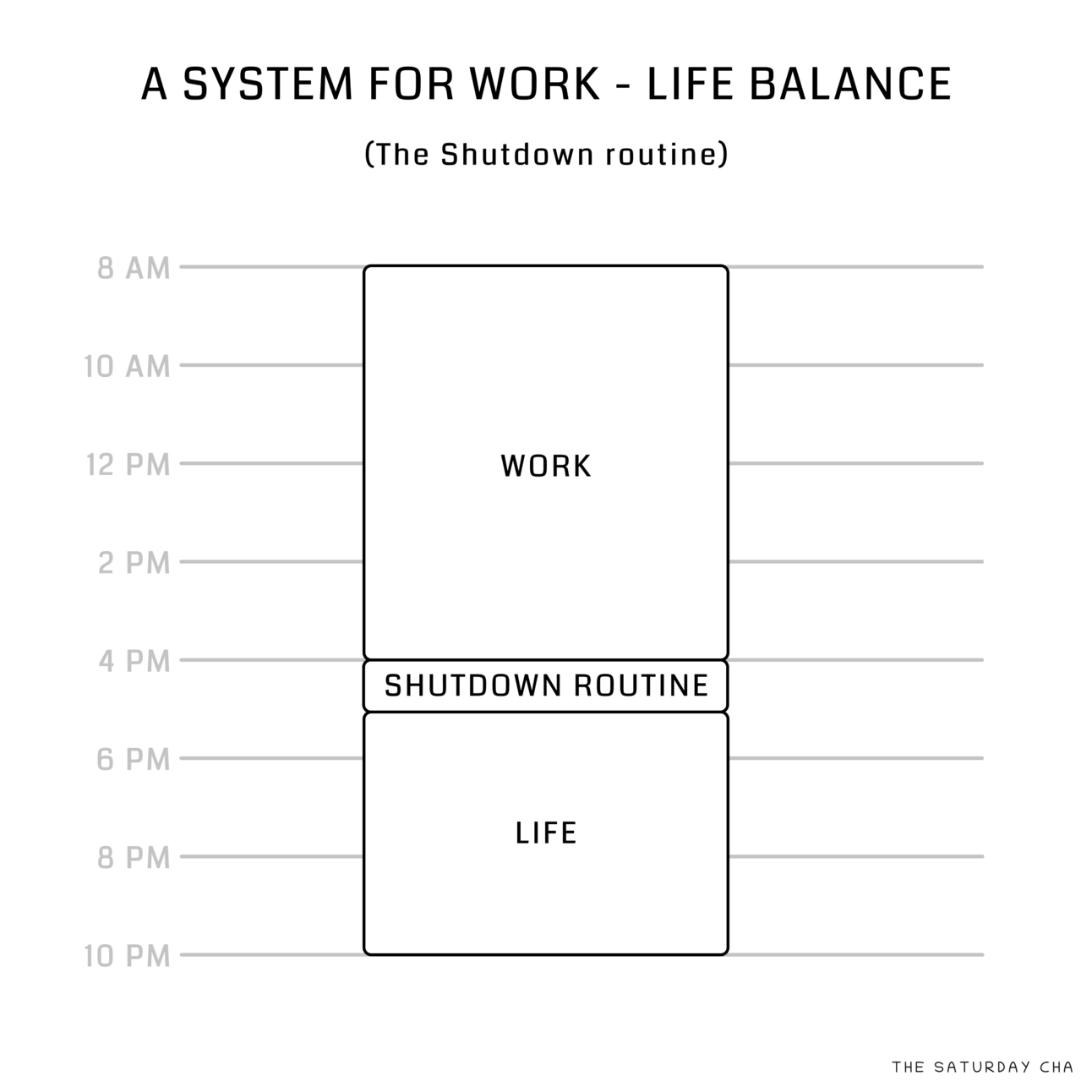
After reading this post, we’ll see:
What is the shutdown routine.
Why you should know about it.
How to use it in your professional life.
TL; DR;
Work and personal time has become one. Create a ritual to draw a boundary, at the end of your workday. This will help boost your mental health.
Ok. What is the shutdown routine?
It is a set of actions you can do at the end of your work day. This tells your brain “work is done, now it’s time to play”. It gives the mind a structured way to wind down. And close open loops so you can free your mind.
As an example, you can follow these steps. Feel free to change as needed.
Create a recurring calendar meeting (with yourself) for the end of your day.
Review today's open projects. Rank the top 3.
In tomorrow's calendar, book 30 - minute deep work slots for each project.
Say "Shutdown complete", close your laptop.
But why should you know about this?
When COVID hit, I was working from home. Work and personal time became one. There was no separation between office and personal work.
In the morning, I'd begin working with no plan. In the evening, tired, I'd work late.
There was no stop to the working day. It's not like you would get back home from office - both office & home were the same place!
So my open projects kept spinning in my mind at night.
😳 My sleep was messed up.
😳 My health suffered.
😳 I was stressed.
In short, it was a disaster.
Fortunately, I read "deep work" by Cal Newport. This book is full of practical advise. Such as the shutdown ritual. It helped me:
😀 Reduce stress
😀 Improve my sleep
😀 Increase productivity.

This book is awesome!
But why does this work?
Unconscious thought theory.
Give your mind a break. This allows your unconscious mind to free up. And work on problems involving a lot of information and vague constraints.
This is why you get great ideas when you’re walking or in the shower.
2. Attention restoration theory
Attention is a finite resource.
After a day of work, don’t exhaust it further.
Watch the sunset, take a walk in nature and you will feel energized.
3. Deep work (mostly) isn’t done in the evenings.
Your high - impact work should be done in the mornings, when you can focus and concentrate.
A beginner can focus intensely for an hour and an expert, around 4 hours.
Anything more isn’t productive.
That’s it!
I hope this concept helps you get better at work - life balance . If you found this helpful, share with someone who will benefit.
Further reading:
P.S: Did you like this idea? Let me know. I personally respond to each mail.

